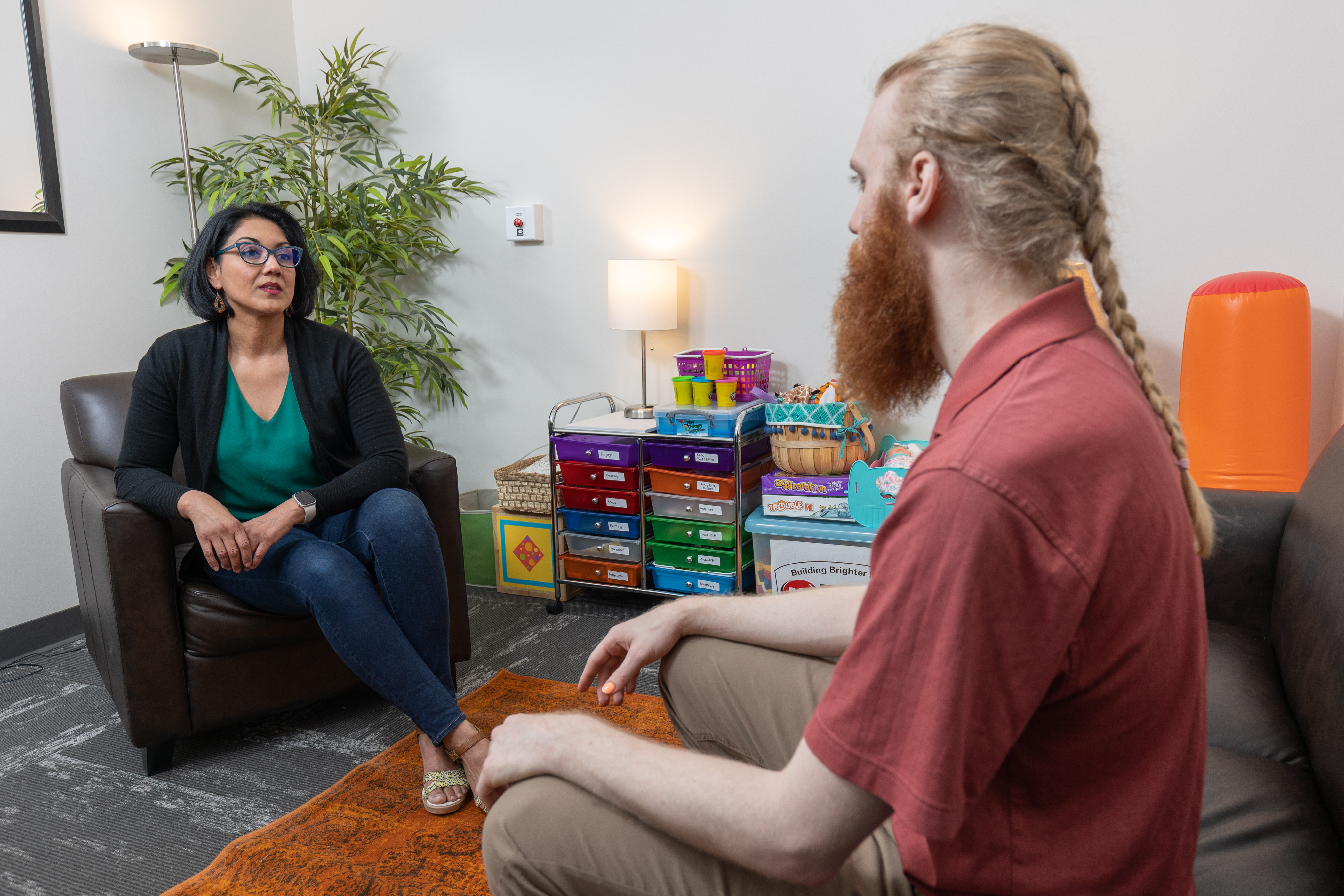Department of Counseling sees tremendous enrollment growth
Idaho ranks 49th in the United States for physicians per capita. Specifically for mental health care providers, the entire state is considered a shortage area and is consistently among the top 15 states for highest suicide rate annually. An influx of students recently enrolling in programs in the Department of Counseling at Idaho State University puts them in a unique position to bring about positive change in the area of access to mental health care providers in the region.
Total enrollment in counseling programs is up from 100 students to 122, who started in the fall of 2022. This includes 21 students pursuing masters level degrees and one pursuing a doctoral degree. The department offers a wide range of specialization options for counselors, including clinical mental health; marriage, couple and family; school; clinical rehabilitation; student affairs and the Ph.D. option. There is also a post-graduate certificate in animal assisted intervention that has seen growth in enrollment in recent years.
Because of the increase in students enrolling in counseling programs, the clinical sites where students provide treatment for clients with faculty supervision have expanded as well. This puts student counselors in direct contact with clients receiving mental health care, ultimately increasing the availability of providers across the state.
“We are thrilled to see our enrollment numbers increase, primarily in the areas of clinical mental health and clinical rehabilitation counseling,” says Dr. David Kleist, department chair. “Because the need is so great for additional providers, these counselors are frequently employed by the sites where they completed their rotations upon graduation, and sometimes even before.”
Kleist says the doctoral program is designed to prepare graduates for work in counselor education programs and the major emphasis is to prepare graduates for a career in university teaching, supervision, and research in counseling programs.
Kleist explains, “ISU’s program was the first to be accredited by the Council for Accreditation of Counseling and Related Educational Programs (CACREP) in 1981. Graduates from this program frequently secure faculty teaching positions in all parts of the United States at highly renowned colleges and universities.”
A relatively new program in the department, Clinical Rehabilitation Counseling (CRC), provides a full scholarship for those who wish to enroll, which has also helped boost enrollment numbers. From 2020-2025, 30 students will have the opportunity to receive a tuition free, masters level education at Idaho State University. The scholarships are funded by a $1 million grant from the United States Department of Education.
CRC professionals collaborate with persons with disabilities, their health care and rehabilitative team members, and employers, to facilitate their psychosocial adaptation and provide support in every aspect of their lives.
These counselors may be working with a person who is recovering from a motor vehicle accident who has acquired a traumatic brain injury (TBI) in order to help them cope with the stress and changes from the injury. They may be working with a veteran who is experiencing post-traumatic stress disorder (PTSD) to help them manage their condition. And from their historic roots, they may be working with a person with an intellectual or psychiatric disability to learn transferable skills or restructure an environment and provide supports that will help them achieve and maintain meaningful employment.
“The goal is simple: enhancing a person’s physical abilities and mental well-being brings improvements to their inclusion, employment, independent living, and overall quality of life,” says Kleist.
For more information about the counseling programs available at ISU, visit isu.edu/counseling.

